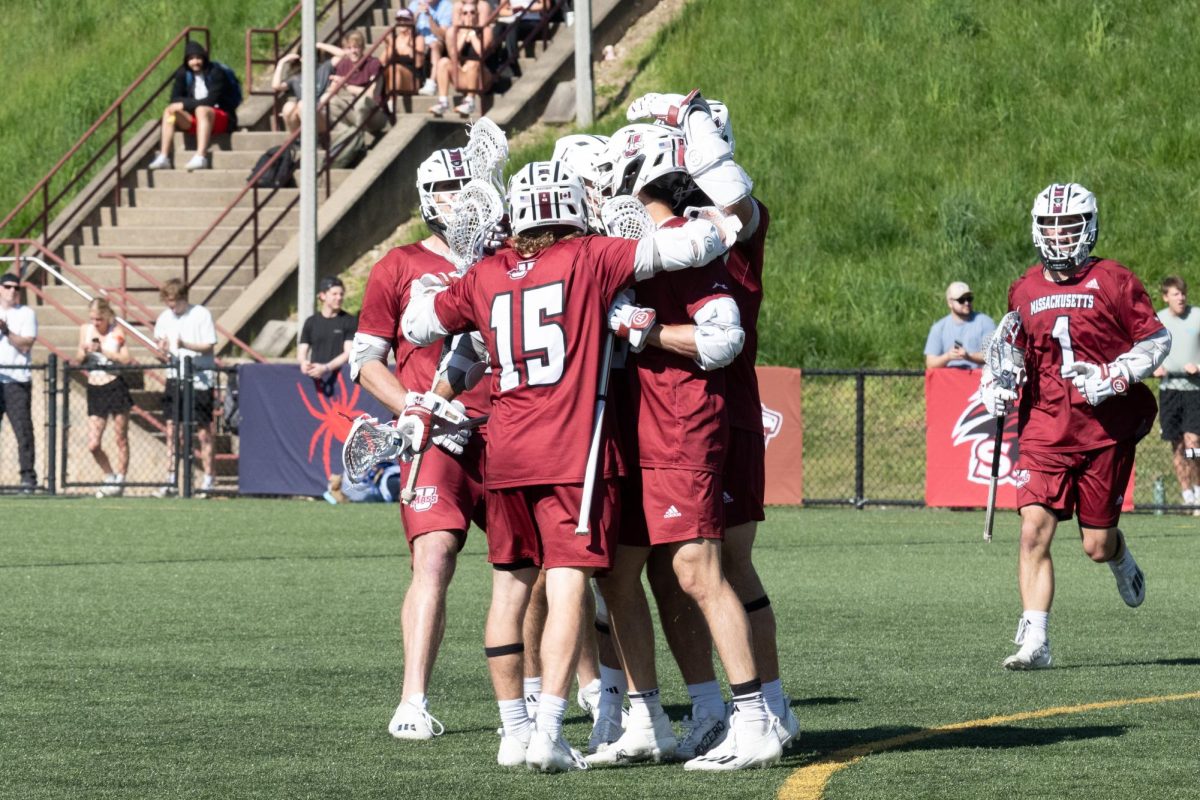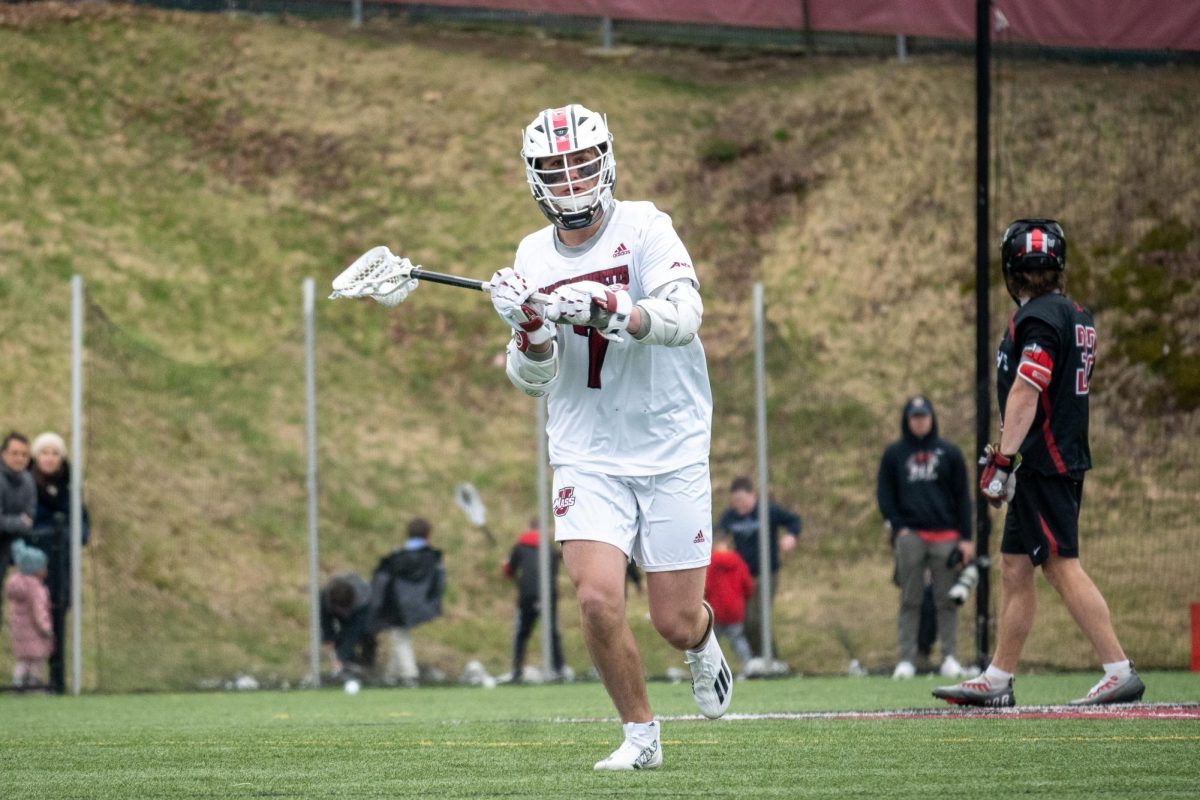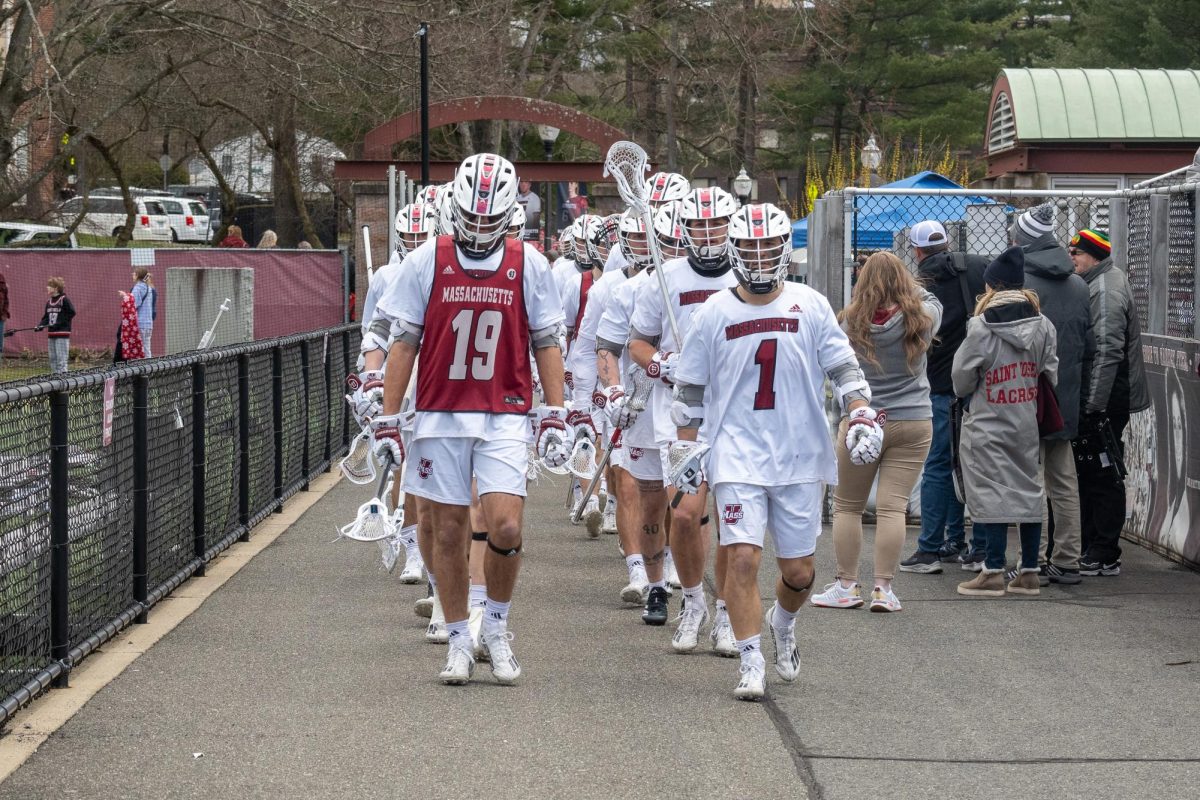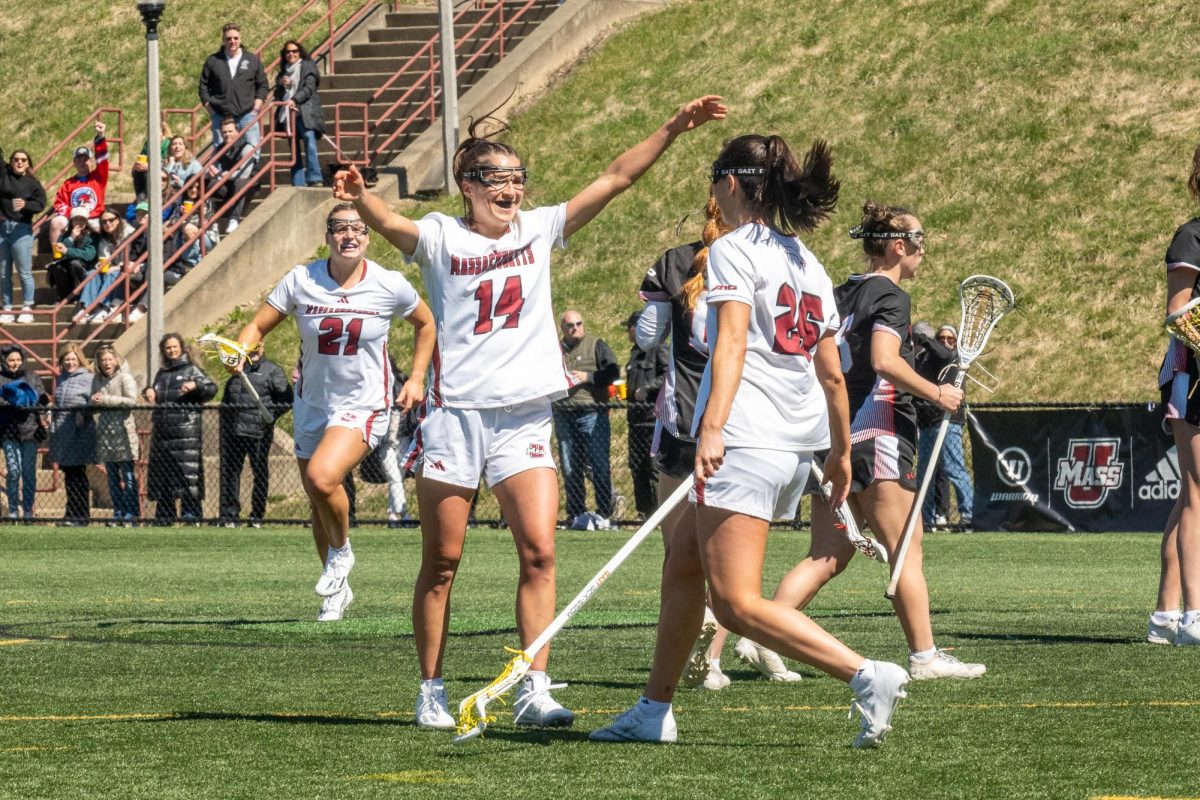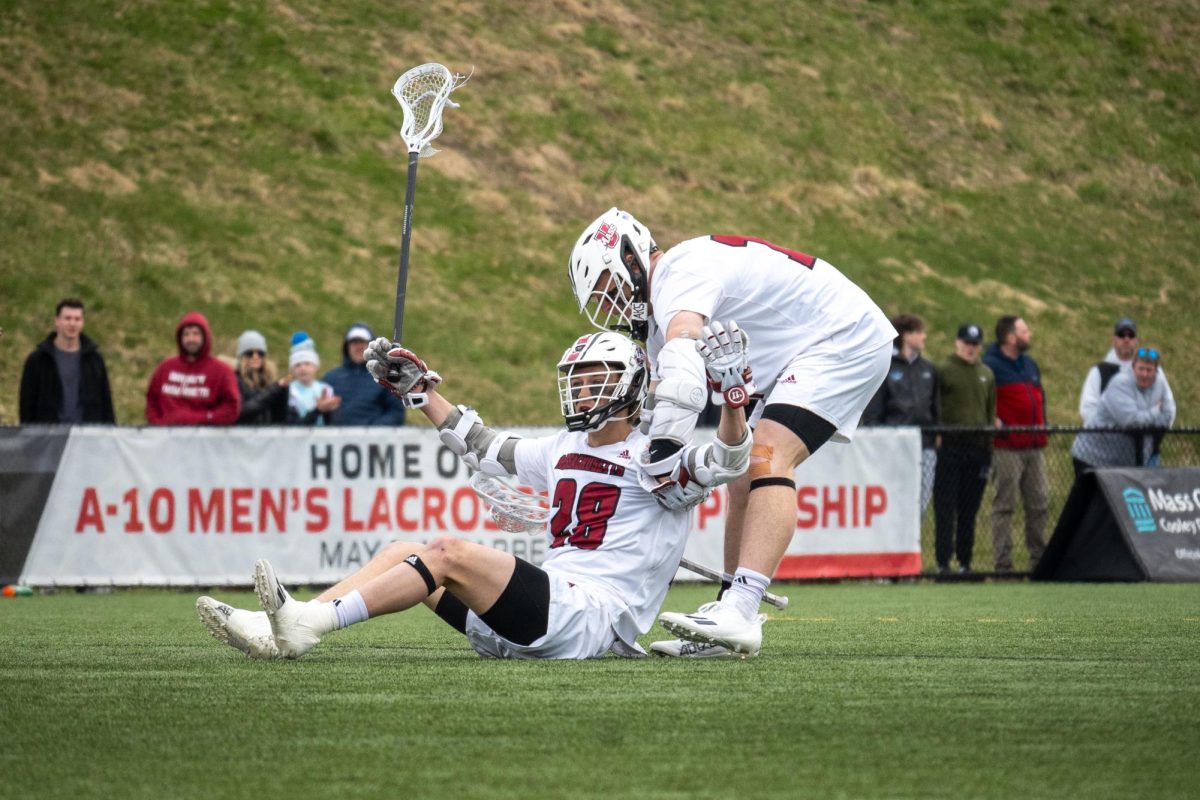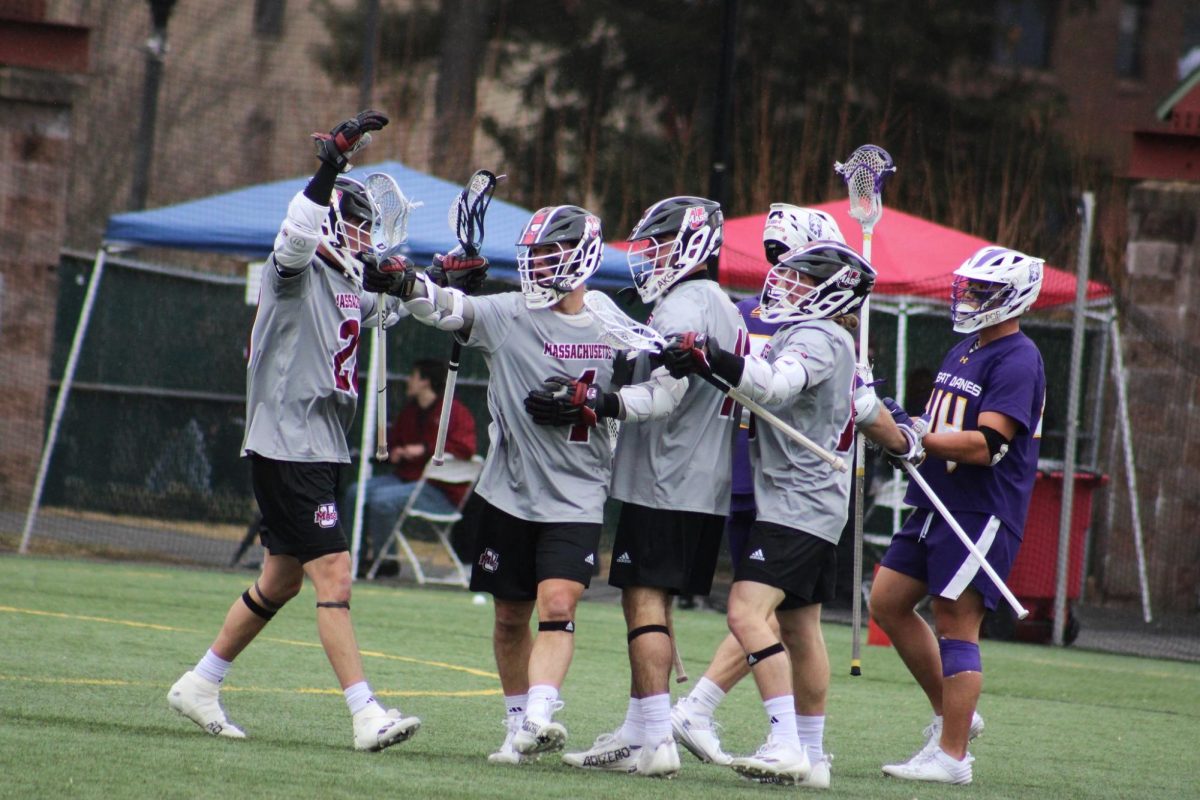
Editor’s note: There was a factual error made in this story. It was written that Zach Oliveri was pulled out of a game in favor of Reed Goodhue due to poor play five times last season. Oliveri was only pulled for poor play once last season in a 15-14 loss to Drexel on April 13. Goodhue’s other appearances came when UMass held a convincing advantage late in games.
It was an accidental epiphany. Zach Oliveri, redshirt sophomore for the Massachusetts men’s lacrosse team, was looking through the DVR in his Ronkonkoma, N.Y., home in June, when he found last year’s game against Hofstra, a 9-8 win on April 20.
The goalkeeper is academically a junior, but has two more seasons of eligibility after this year’s campaign due to redshirting his true freshman year. Still, he became introspective watching the old matchup, hyper-aware that his college lacrosse days are numbered.
Oliveri, entering his second season as a starter, turned that sense of urgency into newfound maturity and composure. Both traits periodically gave way to inexperience and high emotion last year, leading to early exits in five games.
“Once I realized the real world’s coming – you can’t let anything slip away,” Oliveri said. “You don’t want any regrets and you’ve got to learn how to be consistent.”
The 5-foot-9, 200-pounder’s new modus operandi is that proper preparation will bring success. He’s also weaned himself off longstanding rituals and superstitions in an effort to focus his mind before taking the field.
UMass coach Greg Cannella thinks dropping superstitious tendencies is “healthy,” but said the key for Oliveri is confidence in his play and leadership abilities.
Cannella said the “conversations” all his players have within their own heads have to be positive, but added that the stakes are amplified for goalies.
“He realizes if he wants to make his own mark, he has to push his own limits,” Cannella said. “Two of the best proponents for that are (assistant coach Doc Schneider) and Reed Goodhue, who’s been pushing him every day.”
Schneider (UMass Class of 2009), a former four-year starting goalie for Cannella, is charged with coaching the defense, including the goaltenders. As a college freshman, he coached Oliveri on the North Shore Rage, a travel team based out of Long Island, N.Y.
Although the pair’s familiarity doesn’t change Schneider’s expectations or intensity in a mentoring role, he admitted it’s special to coach a player for so long.
“To see the young goalie, who used to wear Rec Specs under his helmet, to what he is now, it’s a pretty cool development,” he said with a smile. “When we’d have early morning games in the summer, they’d sometimes fog up from that change in temperature. That’s our joke together.”
Schneider noticed a difference in Oliveri this year when he reported to fall and winter training sessions in game-ready physical shape. The goalie had improved the most in cardio – a strength Schneider said is valuable in net, despite popular belief.
Oliveri has also sharpened up his poise. He works to not allow himself to “dig a hole” and compact problems when he surrenders goals.
“This year, even our scrimmages – against St. John’s, he didn’t start off great, but then he came back and played really well,” Schneider said. “He knows that’s the player he has been the last three weeks.”
Goodhue, a senior goalie, said Oliveri’s confidence spreads throughout the field when he performs well in net. The two are friendly competitors in practice, but Goodhue makes sure to pass down lessons he learned from former UMass All-American goalie Tim McCormack. It’s also his responsibility to let Oliveri know that his job isn’t “set in stone.”
The captain’s latest advice to the young goalie was simple: avoid extremes, good or bad, when the game is on the line.
“A lot of stress and anxiety can build up,” Goodhue warned from a place of experience. He’s been invaluable for Oliveri, who often seeks advice on the position’s nuances. “You’ve got to be able to handle when shots go in, but also handle when you make a lot of big saves. Not too high, not too low.”
Oliveri knows that he has to sustain that effort in practice instead of “walking” through it, something he was guilty of by his own admission, while expecting to excel on game day. He’s not taking any minute for granted.
“I just learned a lot about myself as a person and how I handle things,” Oliveri said. “I learned to control my emotions and channel them. I had the right idea, it’s just that now, you have to apply it.”
Peter Cappiello can be reached at [email protected] and followed on Twitter @petecapps.

